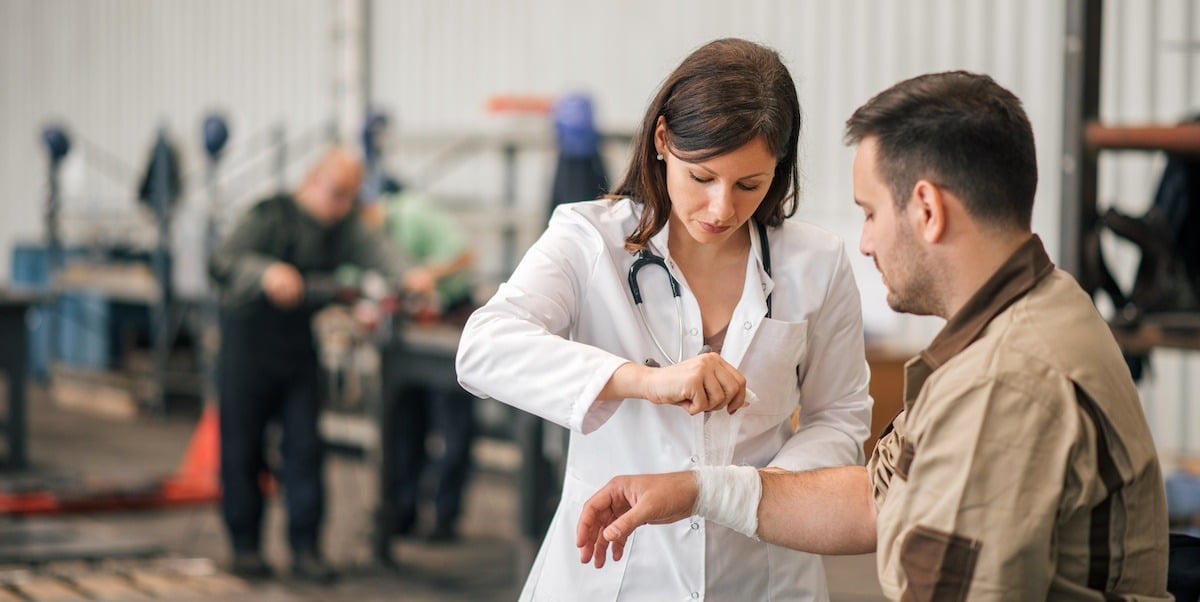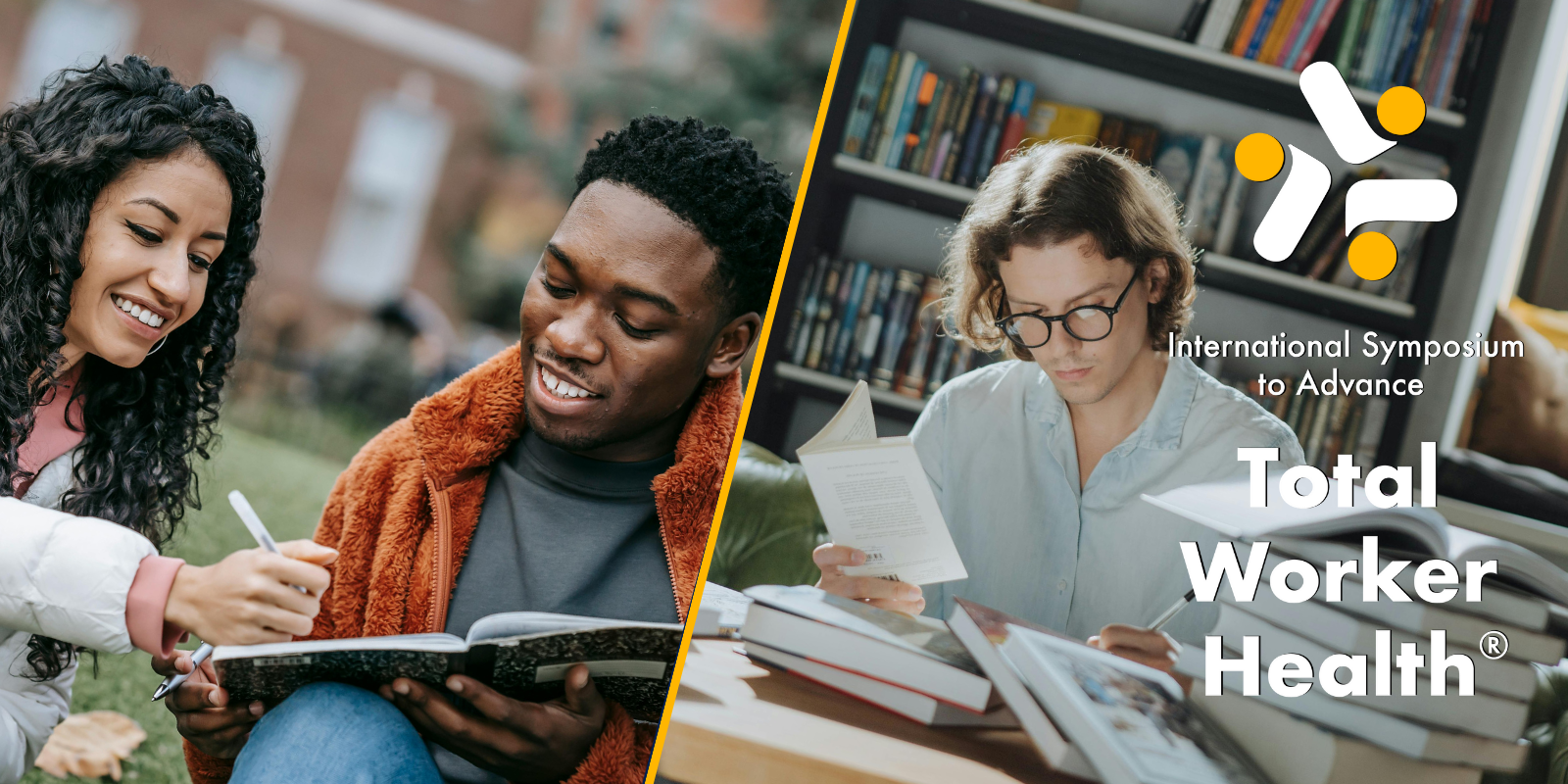Occupational medicine physicians are well known for having the lowest rate of burnout and highest job satisfaction of any medical specialty. However, most graduating medical students are not aware the field exists or are deterred from applying for residency by the match process.
Despite the challenges facing recruitment, the University of Colorado and the Colorado School of Public Health (ColoradoSPH) have been training physicians in this specialty for 30 years. The ACGME-accredited, two-year occupational and environmental medicine (OEM) training program began in 1994 at the University of Colorado School of Medicine and transitioned to the Colorado School of Public Health in 2009. Its mission is to train outstanding, board-certified physicians with the knowledge, leadership and skills to provide occupational and environmental professional services in a wide variety of settings including academic, governmental, corporate, military and community-based organizations.
50 graduates in 30 years
After graduating a total of 50 residents and fellows into OEM, the program begins a new chapter that will bring greater exposure to medical students across the country. The American College of Environmental and Occupational Medicine (ACEOM) is supporting the OEM specialty joining the National Resident Matching Program, and Colorado is one of the 17 programs taking part in this new method for matching physicians looking to specialize in OEM.
“The match improves visibility for OEM,” said Paul Ogden, MD, MSPH, program director for the ColoradoSPH OEM residency and fellowship. “We’re now as visible as any specialty in the house of medicine for trainees.”
“Medical students going into their fourth year previously weren’t sure if they could plan a career in OEM because they needed an internship before applying and wouldn’t know if they would get matched afterwards,” said Ogden. “The new match system allows them to fully plan their training career before they finish medical school and gives us access to quality applicants.”
In celebration of the anniversary and anticipated program growth, we spoke with three outstanding OEM residency graduates who shared highlights from their training and its impact on their careers.

Lisa Maier, MD, MSPH, FCCP, ATSF
Chief, Division of Environmental and Occupational Health Sciences, National Jewish Health
Q: Why have you found a career in occupational medicine satisfying?
For me, a career in occupational environmental medicine has been rewarding because not only do I get to help evaluate workers and their health problems, as well as consider if treatment and diagnostic approaches can reduce their risk of having worse diseases or even prevent diseases from occurring.
Being able to impact policy with our work is super important. As an example, much of our research has resulted in OSHA changing a standard for beryllium exposure and requiring screening for workers with early stages of health effects and mandating clinical evaluation. It has been incredibly amazing to have that kind of policy impact.
Another positive moment was watching the James Webb Space Telescope go up into space and send back information from long distances after having worked with multiple workplaces that were getting the telescope together.
Q: What has been the most surprising time you’ve used your training in your career?
A surprising piece over my career has been seeing how technology has transformed workplaces and our research and clinical care. It takes time to adapt, yet hopefully, it will help us all do our jobs better.
Stella Hines, MD, MSPH
Chief of the Field Studies Branch in the Respiratory Health Division of NIOSH
Q: What was your most memorable experience during your ColoradoSPH training?
Field trip to the uranium mill at Canon City and then uranium in-situ mine in Wyoming led by Health Physicist Dr. Tom Johnson from CSU; Miners Clinic in Page, AZ with Dr. Cecile Rose, screening Navajo miners for lung disease.
Q: What has been the most surprising time you’ve used your training in your career?
One of the core courses during my MSPH training was a social and behavioral health class where we spent a lot of time learning about qualitative research methods. I was extremely annoyed that I had to take this class, as I perceived doing qualitative research as pointless and a waste of my time.
Fast forward to a few years later as a junior faculty member – I had a funding opportunity, and my mentor recommended that I include focus groups and key informant interviews into the first phase of the research project. I reluctantly agreed. The project was funded, and this was the first of several studies related to healthcare's use of reusable respirators, which ultimately turned me into an international subject matter expert, including being interviewed on NBC Nightly News during the pandemic. So, thanks for making us take essential elements of the public health curriculum!
Q: Why have you found a career in occupational medicine satisfying?
I get to hear stories about people’s lives that are better than fiction. I get to learn about new industries and processes, and it continuously forces me to ask questions and maintain a sense of wonder. In 2023, I transitioned from academia and clinical practice to working at NIOSH, where I hope to impact the prevention of work-related respiratory disease at an upstream level, through changes in work practices, policies, and inspiration of others to engage in this work.
X.J. Ethan Moses, MD, MPH, FACOEM
Medical Director, Medical Policy, Colorado Division of Workers' Compensation
Q: What was your most memorable experience during your ColoradoSPH training?
There are so many memorable experiences that it's hard to pick just one. The most impactful experience was the ColoradoSPH Interdisciplinary Symposium course. It brought together trainees from diverse fields—industrial hygiene, ergonomics, health physics, occupational medicine, and organizational and industrial psychology—to collaborate on real-world projects. The multiple site visits we conducted as a team truly made a difference in the occupational health practices of various businesses. More importantly, the connections I forged with colleagues from different disciplines laid the groundwork for a collaborative approach that has been integral to my career. Those interdisciplinary relationships have shaped my ability to tackle complex occupational health issues by incorporating diverse perspectives and expertise, which continue to benefit my work today.
Q: What has been the most surprising time you’ve used your training in your career?
My career consistently draws on various aspects of my training, but the most surprising application came during the COVID-19 pandemic while working as a state employee. The unprecedented situation required rapid decision-making, innovative solutions, and interventions to protect worker health, all with limited and evolving information. My training equipped me to apply public health principles and occupational medicine knowledge to navigate these challenges effectively. One of the most significant initiatives I was able to undertake was the formation of a roundtable of medical leaders from various state agencies, including CDPHE, CDOC, HCPF, and CDHS. This collaborative effort not only facilitated a coordinated response to the pandemic but has continued to yield valuable benefits for occupational and public health across the state over the past four years.
Q: Why have you found a career in occupational medicine satisfying?
There are so many reasons why I find my career in occupational medicine deeply satisfying. I was initially drawn to the field because it satisfies my intellectual curiosity—there's no other medical specialty that offers such a diverse range of topics and challenges. When I was in clinical practice, occupational medicine allowed me to form stronger connections with both my patients and the community than I experienced in family medicine.
Transitioning to a state role, I’ve had the opportunity to work on improving the quality of care for injured workers across Colorado, which has been the most meaningful work of my career.
Additionally, occupational medicine provides an unrivaled work-life balance, a factor consistently highlighted in studies on physician satisfaction and burnout. This balance has allowed me to maintain my passion for the field while continually finding new ways to make an impact, both on an individual and system-wide level.









